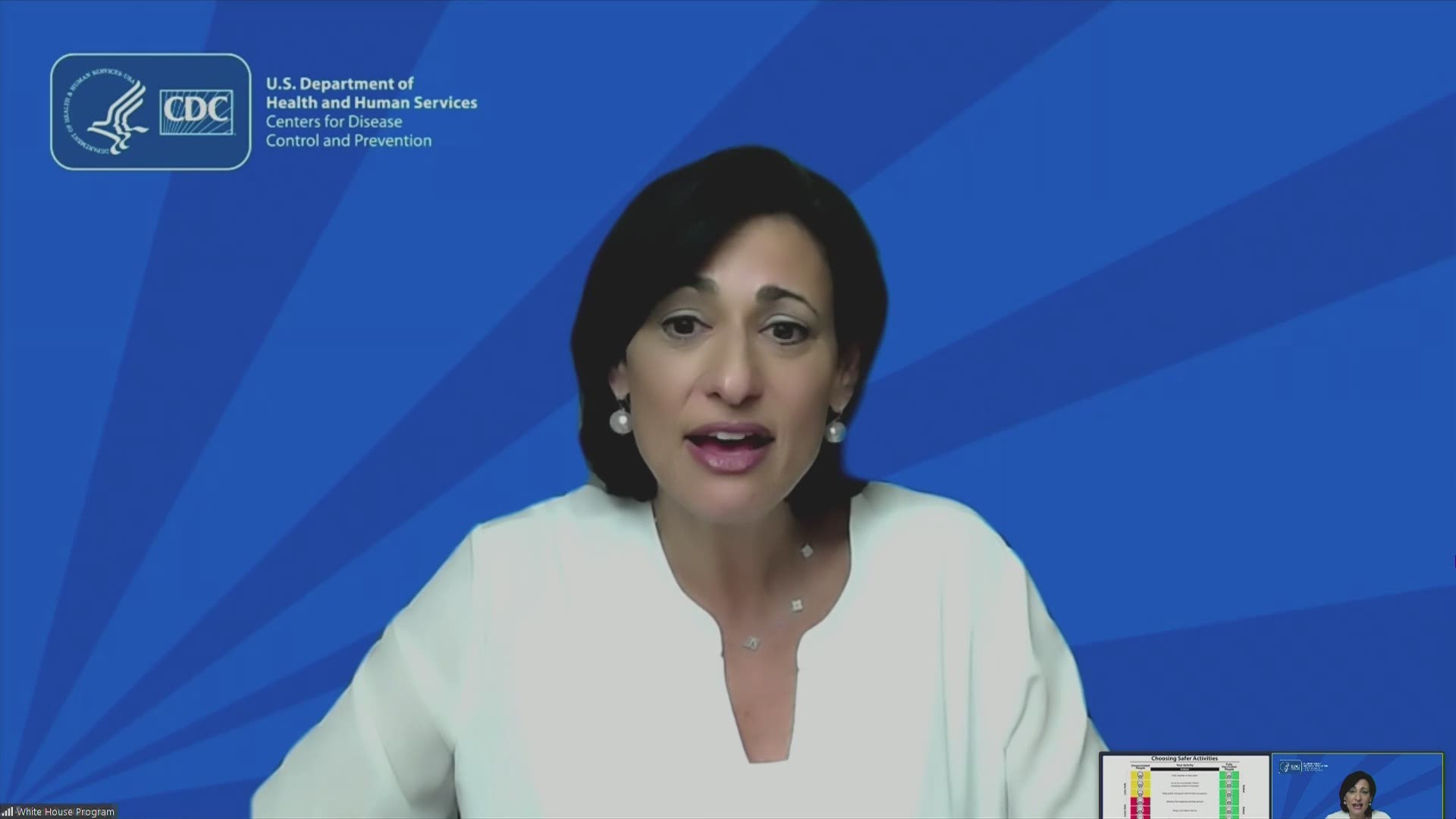Hours after her boss brought an end to virus restrictions for most Tennesseans, the state's health commissioner said mask wearing is now a "personal choice" every resident is free to make.
"Tennesseans are intelligent people," Dr. Lisa Piercey told reporters Tuesday afternoon. "They know what they want."
Options remain for those who want protections against possible exposure to COVID-19, she said.
"If they feel unsafe, they should take extra precautions."
On Tuesday morning, Gov. Bill Lee said he was ending virus-related restrictions for 89 counties in the state and was urging metro areas with their own health departments, including Knox County, to do the same by May 28.
Knox County Mayor Glenn Jacobs promptly announced Tuesday afternoon the county's mask mandate, the last restriction in place, would end at 11:59 p.m. Tuesday.
Jacobs and Lee cited progress made in ensuring the public can get one of three vaccines available that ward against the virus. In Knox County, according to Jacobs, some 40 percent of those age 16 or older have now had at least one shot.
The Centers for Disease Control and Prevention on Tuesday said masks were no longer necessary for those going outside.
The Associated Press reported that everyone, fully vaccinated or not, should keep wearing masks at crowded outdoor events such as concerts or sporting events.
Also, the agency continues to recommend masks at indoor public places, such as hair salons, restaurants, shopping centers, gyms, museums and movie theaters, saying that is still the safer course even for vaccinated people, the AP reported.
Masks, whether Tennesseans liked them or not, became a daily expectation starting in spring 2020 for almost anyone going into enclosed spaces where they had to mingle with the public. Governments required them, businesses required them except when doing things like eating, schools required them.
They became part of the daily apparel routine.
Now, it appears, their use is coming to an end. Businesses can still require them if they like, Lee and Jacobs said.
Piercey acknowledged some government operations like school systems may be confused now about how to respond.
School boards, she said, can keep restrictions in place for students if they want.
Piercey confirmed "vaccine hesitancy" is growing across the state. There's less demand by residents to get a shot. Demand was strong and competitive when shots first became available, she said.
Older Tennesseans, those 60 and older, got the shot at strong rates. But there's been less inclination by younger populations to do the same.
"The hesitancy that we are experiencing here is not unique to Tennessee and it's not unique to rural areas," the doctor said. "It is a bit worse in Tennessee and it is a bit worse in rural areas."
Tennessee has ranked in the bottom tier of states for vaccine rates, CDC figures show.
Over the last couple weeks, providers who administer the shots in the state haven't been requesting their full allotments, Piercey said. Last week less than 20 percent of the full allocation was requested by providers, she said.
"The federal allocation is still reserved for us if and when we need it," she said.
Piercey said it's possible demand will pick up when children become eligible, as expected, to get the two-shot Pfizer vaccine in the coming days or weeks.
The commissioner said she's encouraged to see a sharp reduction in the number of older people who are in the hospital because of COVID-19 complications. Older people -- in their 60s and above -- have had higher death rates from the virus.
But that means more of those who are in the hospital now are younger. It's true that younger people have shown a greater resistance to the virus, but it doesn't mean they're completely immune from getting sick or even dying, Piercey said.

